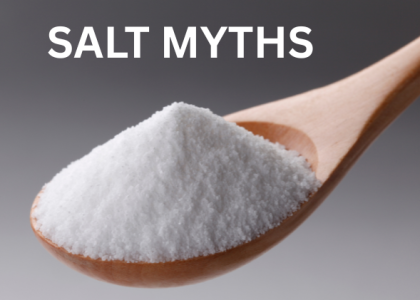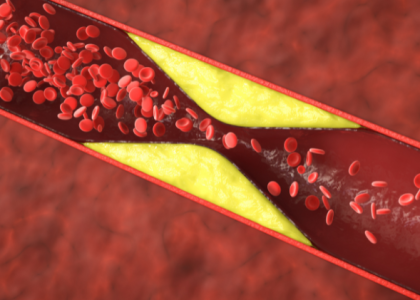When Heart Disease Follows You Home
If your father had a heart attack at 55, your uncle needed bypass surgery at 50, or your sister was recently diagnosed with heart disease, you probably find yourself wondering, “Is this my future too?”
This worry is especially common in South Asian families, where heart disease often appears earlier and more frequently than in other communities.
But here’s something important to remember: your family history raises your risk, but it doesn’t have to determine your destiny.
Understanding Your Family Connection
When a parent, sibling, or first-degree relative has had a heart attack or serious heart disease, your risk increases by about 50% [1]. For South Asians, this family risk is even more significant, as heart disease often strikes 10 years earlier than in other populations [2].
Think of your family history as an early warning system – not a prediction. It’s your body sending you an important message: “Pay attention to me earlier than most people would.”
Meet Anita and Raj
Anita’s Story: “When my father had a heart attack at 48, I was terrified. He was a vegetarian, not overweight, and seemed healthy. After his recovery, I realized our whole family needed to change our approach to health. I got tested early—my ApoB levels were high despite normal cholesterol. Now I’m on medication, exercise regularly, and watch what I eat. At 45, I’m already healthier than my dad was at the same age.”
Raj’s Experience: “Heart disease runs through my family like a red thread. My grandfather, father, and two uncles all had heart attacks before 60. I felt doomed. But my doctor suggested a Calcium Score test at 40, which showed early signs of plaque. This was actually good news—we caught it early! With proper treatment and lifestyle changes, I’ve kept my heart in much better shape than anyone else in my family. Knowledge truly is power.”
Your Genes Load the Gun, Your Lifestyle Pulls the Trigger
Many South Asians believe that family history means heart disease is inevitable. This isn’t true.
Your genes may give you a predisposition, but your daily choices have enormous influence over whether that predisposition becomes reality. Research shows that lifestyle factors can override genetic risk for many people [3].
Consider these factors that are within your control:
- What you eat
- How active you are
- Whether you smoke
- How you manage stress
- How you control conditions like diabetes or high blood pressure
Early Screening Makes All the Difference
Because of your family history, you should start screening earlier than most people would. This doesn’t mean you’re assuming you’ll get heart disease – it means you’re being proactive and smart.
Consider these tests, especially if you’re over 30 and have family history [4]:
ApoB Test: This blood test goes beyond standard cholesterol tests to measure the actual number of potentially harmful particles in your blood. It’s particularly valuable for South Asians, who can have normal LDL but high ApoB levels.
Calcium Score Test: This simple CT scan can detect early buildup in your heart arteries before you have any symptoms. It’s like getting a preview of what’s happening inside your heart pipes before any problems occur.
Lp(a) Test: This measures a genetic type of cholesterol that runs in families and increases heart risk. If your family member had an early heart attack, this test is especially important as Lp(a) is largely inherited.
Taking Control of Your Heart’s Story
Here are practical steps you can take when heart disease runs in your family:
- Know your extended family history
Ask specific questions: At what age did relatives have heart problems? What kind of heart problems? Did they have other conditions like diabetes? - Tell your doctor about your family history
Be specific and ask directly: “Given my family history, what tests should I have, and when should I start?” - Get tested earlier than average
Don’t wait for symptoms or until you reach the standard screening age. - Make family health a shared value
Talk openly about heart health in your family and support each other in making changes. - Consider genetic counseling
If you have multiple close relatives with very early heart disease (before age 50), consider consulting a genetic counselor.
Breaking the Cycle
Remember Rajesh, whose father, grandfather, and three uncles all had heart attacks? He was convinced his heart was a ticking time bomb.
But Rajesh decided to write a different story. He got comprehensive testing at 35, worked with a preventive cardiologist, completely changed his diet, started exercising, and managed his stress through meditation.
Now at 55, he’s heart-healthy and active – already living longer and better than the men in his family before him.
You Can Create a New Family Legacy
Your family history doesn’t have to be your destiny. With early awareness, proper screening, and proactive care, you can write a different health story than your relatives.
Every healthy meal you choose, every walk you take, every screening test you complete – these are all ways you’re actively breaking the cycle.
The fact that you’re reading this shows you’re already taking steps to protect your heart. That awareness alone puts you ahead.
Remember: Your genes may be from your past, but your heart’s future is still being written by the choices you make today. You can break the cycle.
References
- [1] American Heart Association. (2024). “Family History and Heart Disease, Stroke.”
- [2] Stanford Health Care. (2022). “Heart Disease in South Asians.”
- [3] New England Journal of Medicine. (2023). “Genetic Risk, Adherence to a Healthy Lifestyle, and Coronary Disease.”
- [4] Cleveland Clinic. (2024). “Heart Disease: Prevention Through Family History.”




